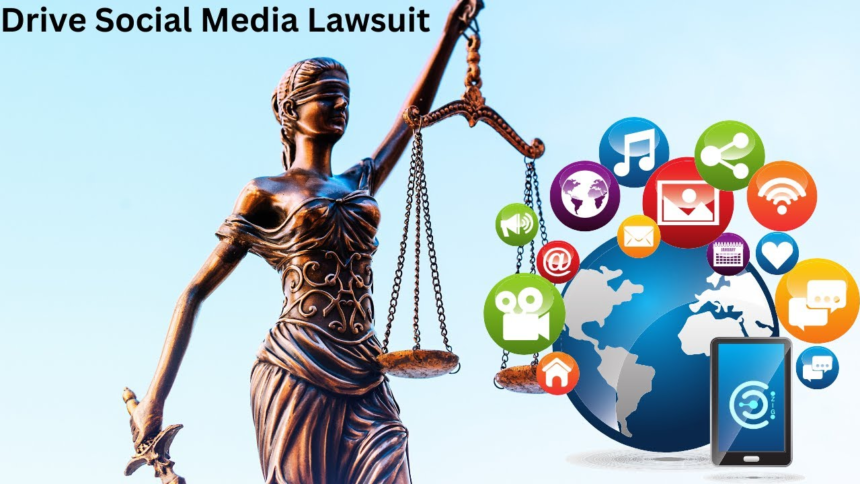Social media has become a cornerstone of communication, marketing, and public engagement in today’s digital era. However, the widespread use of these platforms also brings about legal challenges. From defamation and intellectual property theft to privacy concerns and contract disputes, the landscape of social media law is complex and continually evolving. Understanding how to drive social media lawsuit success is crucial for businesses and individuals facing legal battles in this realm. This comprehensive guide provides insights and strategies to navigate these legal waters effectively.
Understanding the Legal Landscape of Social Media
Social media platforms are governed by a mix of traditional laws and new regulations designed to address the unique challenges posed by digital communication. Key areas of concern often include defamation, copyright infringement, privacy violations, and breaches of terms of service agreements. Understanding these legal foundations is the first step in effectively managing and driving a social media lawsuit.
Defamation and Libel
Defamation, which encompasses libel (written defamation) and slander (spoken defamation), is a common issue on social media. False online statements can spread rapidly, causing significant harm to an individual’s or business’s reputation. To succeed in a defamation lawsuit, the plaintiff must typically prove that the statement was false, damaging, and made without adequate research into its truthfulness.

Copyright and Intellectual Property
Social media platforms are rife with instances of copyright infringement, where users share protected content without permission. This can include anything from images and videos to written content and music. Understanding the intricacies of copyright law and the Digital Millennium Copyright Act (DMCA) is essential for pursuing or defending against such claims.
Privacy Violations
With the vast amount of personal information shared on social media, privacy concerns are paramount. Unauthorized access to personal data, misuse of private information, and breaches of confidentiality agreements can all be grounds for a lawsuit. Privacy laws vary significantly by jurisdiction, making understanding the specific legal protections important.
Breach of Contract
Many social media disputes arise from breaches of terms of service agreements. Users often violate platform policies, leading to account suspensions or terminations, which can have significant business implications. Navigating these disputes requires understanding the contractual relationship between users and the platform.
Strategies for Driving Social Media Lawsuit Success
Successfully managing a social media lawsuit involves a combination of legal acumen, strategic planning, and effective communication. Here are key strategies to drive success in these legal battles.
Building a Strong Legal Team
The complexity of social media law necessitates a specialized legal team. Hiring attorneys with expertise in digital law, intellectual property, and privacy regulations is crucial. A strong legal team can provide valuable guidance, represent your interests effectively, and navigate the intricacies of social media regulations.
Gathering and Preserving Evidence
Evidence is paramount in any legal battle. This often includes screenshots, metadata, and archived web pages on social media. It is essential to gather and preserve all relevant evidence promptly. Using digital forensics tools can help ensure that electronic evidence is admissible in court.
Crafting a Compelling Narrative
Legal battles are often fought in the court of public opinion as much as in the courtroom. Crafting a compelling narrative that resonates with the public and media can influence the outcome of a lawsuit. This involves clear, consistent communication that highlights the key issues and stakes involved in the case.
Leveraging Social Media for Advocacy
Ironically, social media itself can be a powerful tool in a social media lawsuit. Platforms can rally support, disseminate critical information, and counteract negative publicity. Effective social media advocacy involves strategic posting, engaging with supporters, and maintaining a consistent message.
Case Studies: Lessons from Successful Social Media Lawsuits
Examining past social media lawsuits can provide valuable insights and lessons for legal battles. Here are a few notable cases highlighting different aspects of driving social media lawsuit success.
The Case of Lush Cosmetics
Lush Cosmetics successfully sued Amazon for trademark infringement and false advertising. Amazon had been purchasing Google ads for keywords related to Lush, which directed users to counterfeit Lush products on Amazon. Lush’s legal team argued that this misled consumers and damaged their brand. The case underscored the importance of protecting intellectual property and highlighted effective strategies for presenting digital evidence.
The Facebook-Cambridge Analytica Scandal
The Facebook-Cambridge Analytica case is a landmark example of privacy violations on social media. Cambridge Analytica harvested data from millions of Facebook users without consent, leading to widespread public outcry and legal action. Facebook faced significant fines and regulatory scrutiny. This case emphasized the importance of data privacy and the potential consequences of failing to protect user information.
Elon Musk and the “Pedo Guy” Tweet
Elon Musk’s defamation lawsuit stemming from a tweet in which he referred to a diver involved in the Thai cave rescue as a “pedo guy” showcases the complexities of defamation law in the digital age. Musk was not found liable for defamation despite the tweet’s offensive nature. The case illustrated the challenges of proving harm and malice in online defamation cases.
The Role of Public Relations in Social Media Lawsuits
Public relations (PR) plays a critical role in the outcome of social media lawsuits. Managing public perception, responding to media inquiries, and shaping the narrative are essential to a successful legal strategy.
Developing a PR Strategy
A proactive PR strategy involves anticipating potential issues, preparing responses, and engaging with stakeholders. It is essential to align the PR strategy with legal objectives to ensure consistent messaging and avoid compromising the legal case.
Crisis Management
Crisis management is critical during a social media lawsuit. This involves quickly addressing negative publicity, correcting misinformation, and maintaining transparency. Effective crisis management can mitigate damage to reputation and support legal objectives.
Building Support
Garnering public support can influence the outcome of a social media lawsuit. This involves engaging with online communities, leveraging influencers, and mobilizing supporters. Building a coalition of supporters can pressure the opposing party and positively impact the case.
Future Trends in Social Media Lawsuits
The landscape of social media law is continually evolving, driven by technological advancements and changing regulatory environments. Understanding future trends can help individuals and businesses prepare for potential legal challenges.
Increased Regulation
Governments worldwide are increasingly focusing on regulating social media platforms. This includes stricter data privacy laws, enhanced protections against online harassment, and greater accountability for content moderation. Staying informed about regulatory changes is essential for navigating future legal challenges.

The Rise of Artificial Intelligence
Artificial intelligence (AI) is growing in social media, from content moderation to personalized advertising. However, AI raises new legal questions regarding liability, privacy, and discrimination. Understanding the legal implications of AI in social media will be crucial for future legal battles.
Evolving Definitions of Harm
As social media continues evolving, so do definitions of harm and liability. Courts are grappling with new damages, such as emotional distress caused by online harassment or the economic impact of digital defamation. Keeping abreast of these evolving legal standards is vital for effective litigation.
Conclusion
Driving social media lawsuit success requires a multifaceted approach that combines legal expertise, strategic planning, and effective communication. Individuals and businesses can navigate these complex legal battles by understanding the legal landscape, building a solid legal team, leveraging social media for advocacy, and managing public relations. As the digital world evolves, staying informed about emerging trends and regulatory changes will be crucial for future success. Whether dealing with defamation, privacy violations, or intellectual property disputes, the strategies outlined in this guide can help turn legal battles into victories.
Also, Read The Following: Ann Fleischer.









